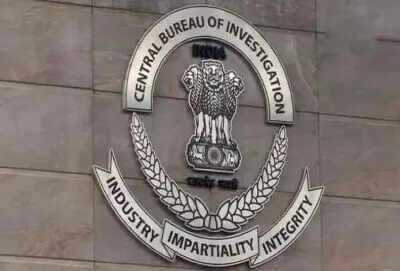The National Company Law Appellate Tribunal (NCLAT) on Tuesday delivered a significant judgment, partly reversing the Competition Commission of India's (CCI) order against WhatsApp.
This pertains to WhatsApp’s 2021 policy, which mandated that users have to share data with Meta and its subsidiaries, and did not give them an option to opt out. Meta forced users to agree to this if they wanted to continue using the app.
In what was considered a landmark judgment, CCI banned WhatsApp from sharing user data with other Meta entities, and imposed a $25.3 million fine.
Now, NCLAT has upheld the penalty but removed the ban on WhatsApp, which was crucial to safeguard user data privacy. The penalty underscores the tribunal's view that Meta imposed unfair conditions on users, validating the CCI's concerns; however, it highlights the limited power of CCI, according to experts.
ETtech explains the details.
The timeline
January 2021: WhatsApp announced a new privacy policy that mandated sharing data with Meta and its subsidiaries, and provided no option for users to opt out if they wanted to continue using WhatsApp.
November 2024: CCI passed an order imposing a $25.3 million fine on Meta and a five-year ban on data sharing.
November 2025: NCLAT partly upheld CCI’s findings and the $25.3 million penalty on Meta. However, it ordered WhatsApp to provide an option for users to opt out of the data sharing.
The conflict
In its judgment last November, CCI held that the “mandatory acceptance of broad and vague data-sharing terms amounted to coercion and (imposed) an unfair condition on users.” According to it, WhatsApp’s 2021 policy is a violation of competition law. However, NCLAT disagrees.
“NCLAT does not think this is anti-competitive as there is an absence of ‘leveraging’ here, because there are two separate entities,” explained a lawyer, requesting anonymity. Leveraging means that a company present in two markets uses it’s dominance in one to better its business in another.
According to CCI, since WhatsApp is fully controlled by Meta, there is abuse of its dominant position, and stated that “denial of market 2 is happening.”
However, according to NCLAT, “it cannot be concluded that it (Meta) has leveraged its dominance in one market (over-the-top messaging) to protect or extend dominance in another (online display advertising), mainly for the reason that WhatsApp and Meta are distinct legal entities.”
“The overlap between competition and data protection is clear from the manner in which both the CCI and the NCLAT examine the issues. We need a closer look at regulatory overlap,” said Karan Chandhiok, head of competition and regulatory practice, Chandhiok and Mahajan.
What does NCLAT agree with?
In a nutshell, the NCLAT partly upholds the CCI order. So, there's a lot that NCLAT agrees with.
“NCLAT has agreed with CCI on relevant markets, saying that WhatsApp should use OTT messaging apps as the relevant market not online display ads. It has also agreed that WhatsApp is dominant in the OTT messaging market and a leading player in online ads,” the lawyer quoted earlier said.
What happens to user data now?
Now that NCLAT has removed the five-year ban, WhatsApp will share user data with Meta. However, NCLAT has ordered WhatsApp to allow users to opt out of this, and ensure the feature is not hidden away somewhere.
This pertains to WhatsApp’s 2021 policy, which mandated that users have to share data with Meta and its subsidiaries, and did not give them an option to opt out. Meta forced users to agree to this if they wanted to continue using the app.
In what was considered a landmark judgment, CCI banned WhatsApp from sharing user data with other Meta entities, and imposed a $25.3 million fine.
Now, NCLAT has upheld the penalty but removed the ban on WhatsApp, which was crucial to safeguard user data privacy. The penalty underscores the tribunal's view that Meta imposed unfair conditions on users, validating the CCI's concerns; however, it highlights the limited power of CCI, according to experts.
ETtech explains the details.
The timeline
January 2021: WhatsApp announced a new privacy policy that mandated sharing data with Meta and its subsidiaries, and provided no option for users to opt out if they wanted to continue using WhatsApp.
November 2024: CCI passed an order imposing a $25.3 million fine on Meta and a five-year ban on data sharing.
November 2025: NCLAT partly upheld CCI’s findings and the $25.3 million penalty on Meta. However, it ordered WhatsApp to provide an option for users to opt out of the data sharing.
The conflict
In its judgment last November, CCI held that the “mandatory acceptance of broad and vague data-sharing terms amounted to coercion and (imposed) an unfair condition on users.” According to it, WhatsApp’s 2021 policy is a violation of competition law. However, NCLAT disagrees.
“NCLAT does not think this is anti-competitive as there is an absence of ‘leveraging’ here, because there are two separate entities,” explained a lawyer, requesting anonymity. Leveraging means that a company present in two markets uses it’s dominance in one to better its business in another.
According to CCI, since WhatsApp is fully controlled by Meta, there is abuse of its dominant position, and stated that “denial of market 2 is happening.”
However, according to NCLAT, “it cannot be concluded that it (Meta) has leveraged its dominance in one market (over-the-top messaging) to protect or extend dominance in another (online display advertising), mainly for the reason that WhatsApp and Meta are distinct legal entities.”
“The overlap between competition and data protection is clear from the manner in which both the CCI and the NCLAT examine the issues. We need a closer look at regulatory overlap,” said Karan Chandhiok, head of competition and regulatory practice, Chandhiok and Mahajan.
What does NCLAT agree with?
In a nutshell, the NCLAT partly upholds the CCI order. So, there's a lot that NCLAT agrees with.
“NCLAT has agreed with CCI on relevant markets, saying that WhatsApp should use OTT messaging apps as the relevant market not online display ads. It has also agreed that WhatsApp is dominant in the OTT messaging market and a leading player in online ads,” the lawyer quoted earlier said.
What happens to user data now?
Now that NCLAT has removed the five-year ban, WhatsApp will share user data with Meta. However, NCLAT has ordered WhatsApp to allow users to opt out of this, and ensure the feature is not hidden away somewhere.





